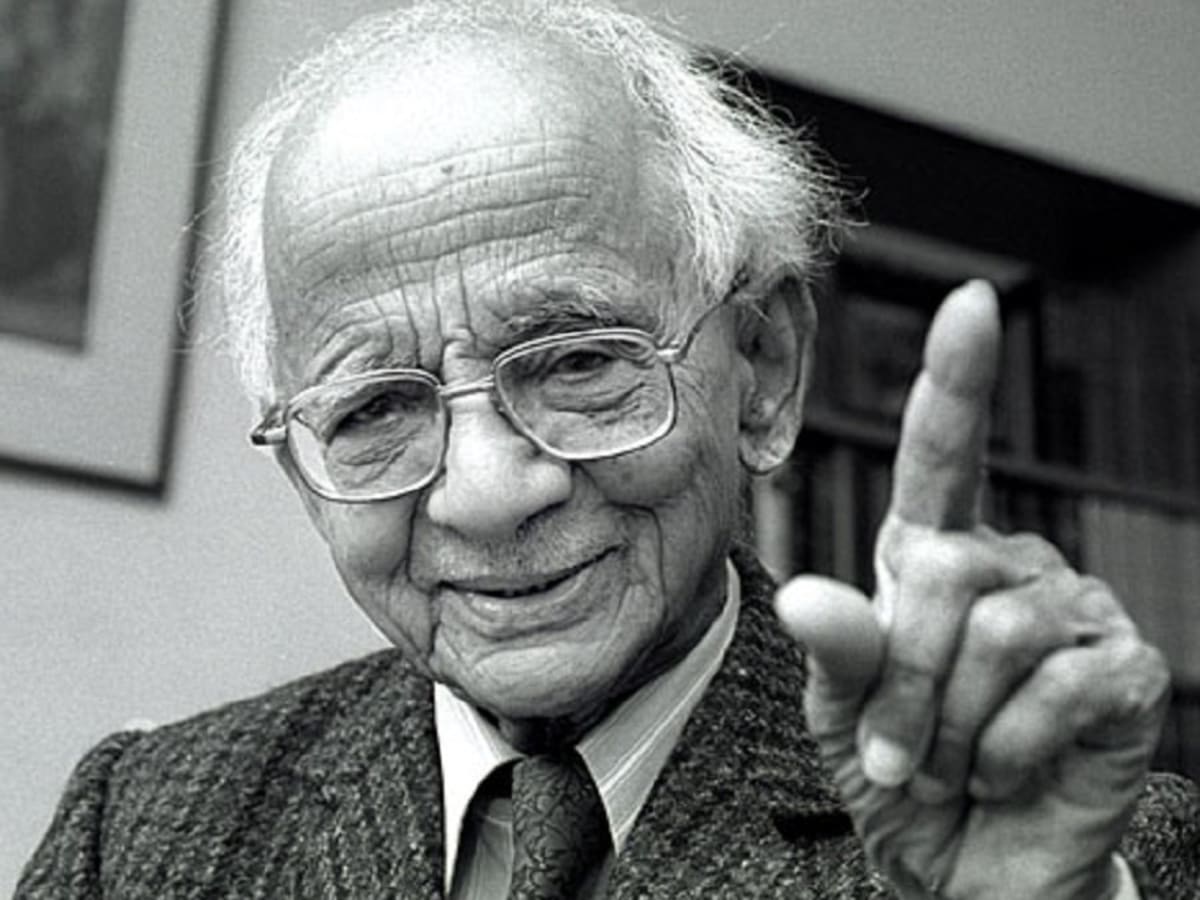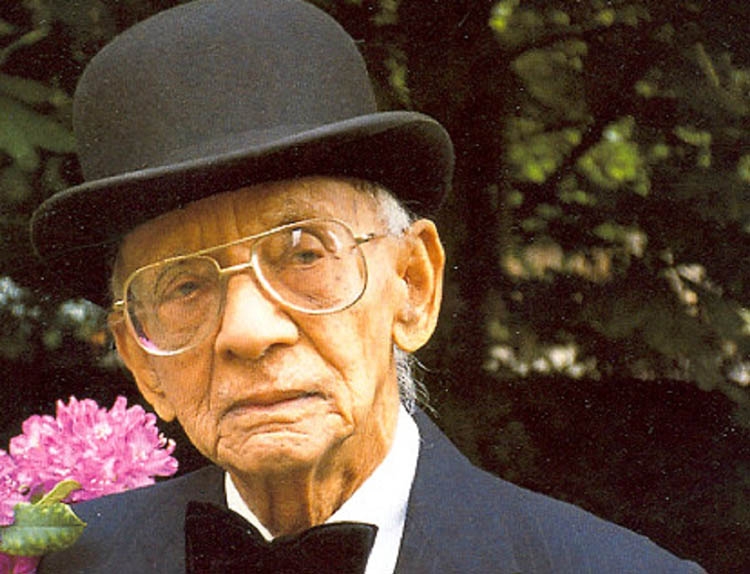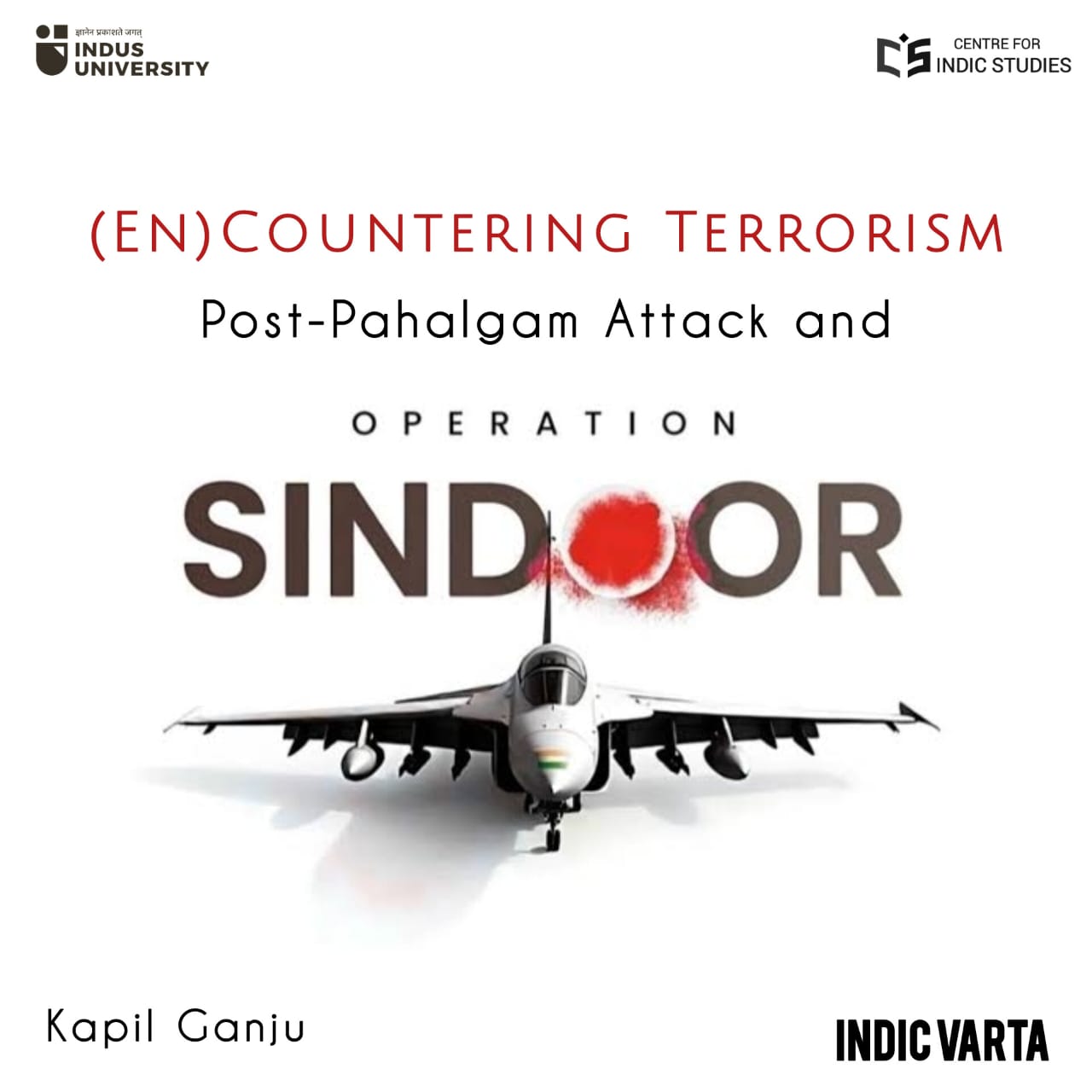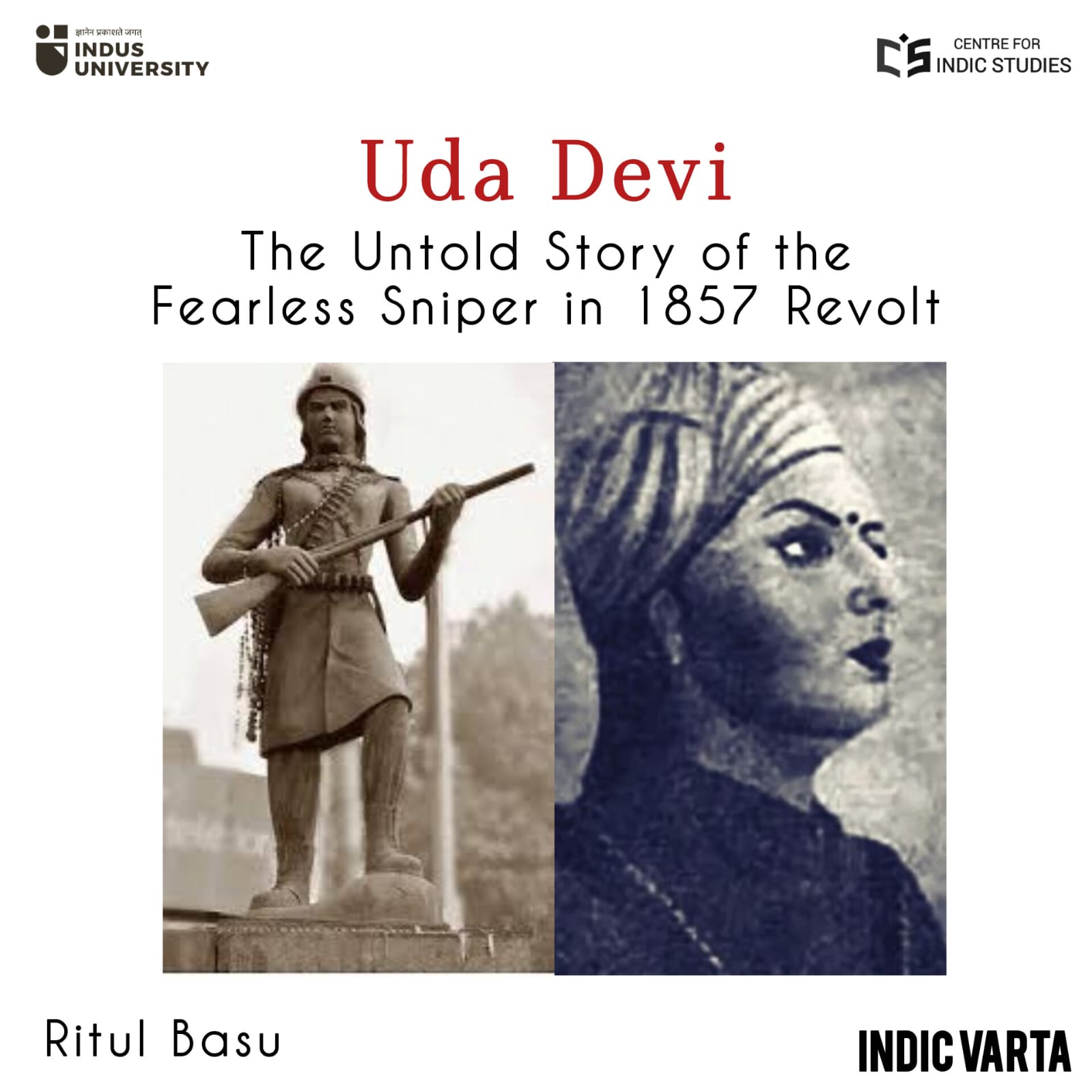- Visitor:84
- Published on:
When an Indian Met the ‘Intimate Enemy’: Nirad Chandra Chaudhuri’s Life and Work – 1
Read this brilliant analysis of the well known Indian writer Nirad.C.Chaudhuri who was equally admired and disliked by many of his contemporaries.

Who was Nirad Chandra Chaudhuri?
He was a formidable polymath who wrote with equal felicity in both English and his native Bengali. Often, his English prose would be peppered with Latin phrases or long French quotes, all left untranslated. Nirad C. (somehow, I prefer this diminution of the name) was a demanding author who seemed to expect the reader to be on a par with him and have access to these languages. His Bengali prose was heavily Sanskritized and possessed a stern dignity. He preferred the majestic ‘high’ Bengali (śādhu Bānglā) which originated in the nineteenth century and had such illustrious protagonists as Ishwar Chandra Vidyasagar and Bankimchandra Chattopadhyay. Nirad C. wrote a considerable amount in the two languages and has left behind a very respectable bibliography. The two volumes of his autobiography are a veritable commentary on the social and political scene in Bengal and the rest of India in the pre- and immediate post-independence periods. These are respectably titled, Autobiography of an Unknown Indian (1951) and Thy Hand, Great Anarch! India, 1921-1952 (1987). Other noteworthy English works by him are A Passage to England (1959) and The Continent of Circe (1965). The former, as you notice, has occasioned this article. It would also engage with some of Nirad C.’s effusions in the latter book. In Bengali, Nirad C. has produced some maverick cultural studies like Ātmaghāti Bāngāli (‘The Suicidal Bengali’, 1988) and Bāngāli Jiboné Ramani (‘Women in Bengali Life’, 1968). Alongside, one must mention his biographical study of Rabindranath Tagore titled Ātmaghāti Rabindranāth (‘Suicidal Rabindranath’, 1988). As his English writings exhibited an easy familiarity with classical European literature, his Bengali prose often drew upon Sanskrit drama or poetry to make a point. One observes that at some level his intellectual and cultural cultivation was very Indian. But he was also the passionate Anglophile who, over the course of his long life, transformed himself every inch into a brown Englishman. Such was the extent of his Anglophilia that he dedicated the first volume of his autobiography to the memory of the British Empire. [1] Yes, good old Nirad C. really did that! I am not making this up. He was as much the quintessence of the colonized as he was Indian and Bengali. This makes him so very interesting.
Nirad C. was born in the year 1897 in what is today Bangladesh, in a small town called Kishorganj, in the Mymansingh district. One might say that his family was modestly prosperous. Nirad C.’s father was a criminal lawyer. The professional description that he uses for him is ‘mukteār’. [2] As described by Nirad C., his place of birth had a bucolic charm. Kishorganj sprawled on either side of a river [3] (not named by him) and hardly had any brick buildings. [4] This ostensible ‘town’ was a collection of “tin-and-mat huts or sheds”. [5] Thus, this ardent Anglophile of later years spent his early life in a setting that was barely urban in the proper sense, leave alone Anglicized. Nor did he come into any close contacts with Englishmen as he was growing up. The only instance when the child Nirad C. seems to have conversed with a representative of the ruling race was when he answered certain questions posed by an inspector of schools in “tolerable English”. [6] As he writes, this left Mr. Stapleton “very pleased” with him. [7] Nevertheless, the metropole, England, and, by extension, Europe, were a cultural and intellectual presence in his life. This is unsurprising, considering Nirad C.’s class background. It was a time when, I would argue, the Bengali middle class was in a rather ambiguous collective state of mind. While getting increasingly nationalist in outlook, it was also intimately engaging with the cultural and intellectual inheritances of Europe through the English language. Thus, the imagination of ‘England’ that Nirad C. apprehended in his childhood was a cosmopolitan one, it engaged with the broader European heritage. We learn that he developed familiarity with Homer alongside Shakespeare and Milton. [8] He was introduced to European painting very early. On the front door of Nirad C’s home was stuck a print of Raphael’s ‘Medonna della Sedia’. [9] Along with literature and art, Europe seems to have impinged on his life as a set of heroes. We see Nirad C. confessing to a penchant for “Bonapartism” and regarding Napoleon a “transcendental and supranational military genius.” [10] For Edmund Burke he felt “nothing but whole-hearted reverence.” [11] Finally, we observe that Nirad C. took to idealizing England as a physical space. The “verbal descriptions” and “pictures” of the country induced him to form the impression that it possessed a “great beauty of aspect.” [12]

The child Nirad C. was not untouched by nationalism though. His reaction to the Boer War, he writes, was “curiously mixed.” On the one hand he “shared in” England’s victories; on the other, the patriotic half of him “wanted the enemies of England to win”. [13] According to Nirad C., he had his “formal initiation” into nationalism in 1905 [14], against the backdrop of the partition of Bengal carried out by Lord Curzon. It must have been October 16, the day this partition came into effect, when a gentleman called at his house “with a bundle of silk threads” and tied those around his and his siblings’ wrists. [15] The anti-partition agitators had chosen the day to reaffirm the unity of Bengalis through this gesture. Later, Nirad C. and his siblings “put away” their English made clothes and “put on” coarse dhotismanufactured in Indian mills. [16] Sometime after, he joined a nationalist “physical-culture club” where he underwent drills and physical exercises. [17] As though to formally complete his immersion in Indian nationalism, at the end of the summer break next year, Nirad C.’s father pulled him out of the government school he was attending and enrolled him in a “national school.” [18] I wonder if Nirad C. learnt to appreciate Sanskrit literature at this place. This is since he does not write about there being any Sanskrit books at his home. [19]
However, regardless of the experience of nationalist agitation that he made in his childhood, what triumphed in the adult Nirad C. was the Anglicizing tendency. After securing a stellar B.A. in history from the University of Calcutta, he was “placed first in order of merit in the first class”, [20] he had a checkered academic and professional career. He enrolled in M.A. only to drop out of it. Thereafter, we see him moving from employment to employment and often being financially very straitened. [21] He achieved a modicum of financial comfort after he became secretary to Sarat Chandra Bose, Subhas Chandra Bose’s elder brother, in 1937 (he worked in this capacity till 1941 when he joined the All-India Radio). Nevertheless, despite being financially precarious for long intervals, we see Nirad C. incurring considerable expenses to acquire European ways. For instance, he took a keen interest in European interior decoration and bought “Studio Yearbooks of Decorative Art” [22] at a time when he was without a regular source of income. After finding employment at Sarat Chandra Bose’s, Nirad C. began to build a collection of European classical music records. [23] His admiration for all things European, it appears to us, was only an extension of his whole heartedly positive estimate of Britain as a colonial overlord. He had come to consider “British rule in India…the best political regime which had ever been seen in India….” [24] Nirad C. was “loyal to the larger phenomenon of European life and culture” since he was loyal to “English life and civilization”. [25] The two together, we see him declaring, formed his personality. [26] It must have been as a consequence of being ‘formed’ by European and English ‘life, culture, and civilization’, we suspect, that he had thoroughly internalized the Western, ‘orientalist’, construction of Indian history. As we shall see below, he regurgitated it in The Continent of Circe. The adult Nirad C. took a very poor view of Indian nationalism, presumably on account of the mental cast he had acquired. He thought that Indian nationalism lacked “positive and constructive ideas” [27] and had come to “coalesce” with “Hindu xenophobia.” [28] Yes, he generally nurtured an uncharitable estimate of the Hindus too, much like the ‘left-liberals’ of today, though he was one himself. How do we make sense of this man? Was Nirad C. a fluke, and unpleasant aberration, or had he been brought forth by some social or historical trends?
Contextualizing Nirad Chandra Chaudhuri
Colonialism, to borrow a phrase from the sociologist Ashis Nandy, was an ‘intimate enemy’. [29] For many of the colonized, it was a lot more than a regime of political subjugation and economic exploitation. Colonialism forced them to assess their own culture and inherited ways in relation to Western knowledge and ‘reason’ and decide if they measured up. They, thus, had to perforce grapple with the reality of colonialism in their everyday private lives and psychologically respond to it. Some of the earliest colonial people to do this were the nineteenth century Bengali intelligentsia. In fact, the historian Tapan Raychaudhuri claims that they were the “first Asian social group of any size” to have their mental worlds transformed through interactions with the West. [30] Consequently, they came up with a variety of responses to the West along with assessments of their own culture. Tapan Raychaudhuri has tried to capture some of these responses and assessments through an examination of the lives of Bhudev Mukhopadhyay (1827-1894), Bankimchandra Chattopadhyay (1838-1894), and Swami Vivekananda (1863-1902) in his monograph Europe Reconsidered.
Bhudev, a Sanskrit scholar and occasional novelist in Bengali, scrupulously adhered to the “regime of strict ritual observances” required of a Brahmin and manifested the “correct conduct, as prescribed in the Smritis, in matters of food, drink and virtually every detail of private life.” [31] This was despite having attended Hindu College (now Presidency University) where many of his ‘radical’ peers went to great lengths to westernize themselves and snub Hindu sensibilities. They delighted in washing down beef kababs with whisky. [32] Bhudev, thus, affirmed faith in his dharma in the face of the most serious challenges. He believed in the superiority of Hinduism [33] and defended the traditional Hindu social institutions like caste and the joint family.[34] According to Raychaudhuri, “there is evidence to prove” that Bhudev “deeply resented” British rule. [35] Yet, it appears that he recommended something like a modus vivendi, pragmatic adjustment, with it. Bhudev thought that there ought not to be any agitation against the alien rulers since it was not in keeping with Indian tradition. [36] It seems that he acknowledged the superiority of western knowledge, albeit reluctantly. Raychaudhuri writes that in Bhudev’s view Indians had a lot to learn from educated Europeans “provided they did not try to show off their western education….” [37]
Compared to Bhudev, we notice that Bankimchandra was a rather complex, even conflicted, personality. He resented being a civil servant [38] though he rose to be a Deputy Magistrate and Deputy Collector in the colonial administration. His lot was an “almost continual friction” [39] with his English superiors and, according to Raychaudhuri, “on more than one occasion” [40] he thought of leaving his job and taking up law as a profession. Yet, Bankimchandra adopted certain European ways, dining with a knife and fork, for instance, and drinking alcohol. [41] Though a ‘kulin’ Brahmin like Bhudev, he did not adhere to a ritually pure lifestyle. Bankimchandra was well read in European literature, both classical and contemporary [42] and, in his own admission, was more at ease in English than Bengali. [43] His nationalism was “intense” but, writes Raychaudhuri, “he shared with his contemporaries the…belief that British rule was there to stay for a long time to come….” [44] Like Bhudev, Bankimchandra seems to have accepted the reality of political servitude to Britain with a pragmatic resignation, though he hoped that the right program of national regeneration shall eventually bring freedom. [45] Bankimchandra’s overall intellectual outlook was, it seems, shaped by European social and political philosophies and ‘rationality’. According to Raychaudhuri, he was much influenced by the Utilitarianism of Jeremy Bentham and John Stuart Mill and Auguste Comte’s Positivism. [46] He initially conceded the worldly and intellectual superiority of Europe. There was a juncture when Bankimchandra candidly admired the material progress Europe had achieved, [47] along with the inductive method of knowing followed by Europeans which, he thought, privileged observation and experiment. [48] He was, nevertheless, by the end of his life, “self-consciously Hindu” [49] and believer in the overall superiority of India over the West. As understood by Bankimchandra, writes Raychaudhuri, the basis of this superiority was Hinduism. Bankimchandra considered the Hindu “ideal of prayer” profounder than Christian worship and was assured that Krishna was a superior and more complete ideal than Christ. [50]
In the words of Raychaudhuri, Swami Vivekananda (henceforth Swamiji) was “very much a typical product of western education” [51] before he became a disciple of Shri Ramakrishna Paramhansa. He was, as a matter of fact, the outspoken sceptic and rationalist prior to that turn in his life. Swamiji was well read in European history [52] as well as the physical sciences – we learn from Raychaudhuri that once he reeled off a long reading list for chemistry and astronomy before an American audience with great ease. [53] He had “total” respect for “many areas of western scholarship….” [54] At the same time, his immersion in his own heritage was profound. Swamiji, for instance, greatly admired the poetry of Kalidasa and could recite his major works by heart. [55] Apparently, he had imbibed something of the nationalist spirit even as a child and had refused to learn English as an eight-year-old. [56] Swamiji changed his mind only after being persuaded by his mother. In later life, when travelling abroad, he would be often violently critical of British rule [57] – he does not seem to have nurtured any ambivalence towards the alien regime. Even Swamiji’s spirituality, we might say, was an aspect of his confident and unambiguous nationalism. He scathingly took on the Christian evangelists who slandered Hinduism. [58] Swamiji’s pride in India’s past derived from a belief in “the supreme excellence of India’s tradition of spiritual quest….” [59] He did admire aspects of western society though. For example, in Swamiji’s eyes, Europe’s pursuit of material ends was a manifestation of Rajas – “the element of manly and this worldly virtues.” [60] He was also very “impressed by the treatment and status of women in the West.” [61]
The lives of Bhudev, Bankimchandra, and Swamiji are an account of the range of subjectivities colonialism brought about in the nineteenth century Bengali intelligentsia, as they responded to the West politically and intellectually while simultaneously reflecting on their own society and culture. These subjectivities were indeed variegated. We espy a pragmatic, or fatalistic, acceptance of British rule, as with Bhudev and Bankim, or we see Swamiji denouncing it in no uncertain terms. We come across Bhudev reluctantly conceding the worth of western knowledge, or we witness Bankimchandra and Swamiji admiring and engaging with it, to the extent that their intellects were, to a considerable degree, shaped by this knowledge. Finally, we apprehend a subjectivity consistent through the three lives – a firm belief in the intrinsic worth, even superiority, of Hindu spirituality and way of life. Together, these subjectivities belonged to, and constituted, that remarkably vibrant milieu which is today popularly remembered as the ‘Bengal renaissance’. We shall argue that a character like Nirad C. makes better sense only when viewed as an outcome of this milieu. He was born in a society that was, for the past many decades, critically self-reflecting and engaging with the colonial reality as an ‘intimate enemy’. It had, in the process, along with the subjectivities enumerated above, produced the subjectivity of capitulation.
References
- See Autobiography of an Unknown Indian (Ahmedabad, Bangalore, Bhopal, Chennai, Delhi, Hyderabad, Kolkata, Lucknow, Mumbai: Jaico Publishing House, 2010 [twenty-eighth impression]).
- Ibid., 51.
- Ibid., p.30.
- Ibid., p.5.
- Ibid., p.3.
- Ibid., p.131.
- Ibid.
- Ibid., p.110.
- Ibid., p.112.
- Ibid., p.115.
- Ibid., p.120.
- Ibid., p.122.
- Ibid., p.117. I assume that he is talking about the Second Boer War here (1899-1902). It was fought between Britain and the Dutch states of Transvaal and Orange Free State in what is today South Africa. Considering that he was no older than five when the war concluded, he must have been a remarkably precocious child to register and comprehend what was happening in its course and develop “curiously mixed” feelings about it.
- Ibid., p.244.
- Ibid., p.245.
- Ibid., p.245.
- Ibid., p.270.
- Ibid., p.274.
- Ibid., p.28.
- Ibid., p.389.
- Starting in 1921, he worked for five years as a clerk at the Military Accounts Department; thereafter, till 1933, we see him contributing articles to a journal named The Modern Review; then he served a brief stint at the Calcutta Corporation, editing its official journal.
- Autobiography of an Unknown Indian. Part II. Thy Hand, Great Anarch! India 1921-1952 (Ahmedabad, Bangalore, Bhopal, Chennai, Delhi, Hyderabad, Kolkata, Lucknow, Mumbai: Jaico Publishing House, 2009 [second impression]), p.192.
- Ibid., pp.641-642. It is vinyl records that are meant.
- Ibid., p.27.
- Ibid.
- Ibid.
- Ibid., p.31.
- Ibid., p.33.
- Ashis Nandy, The Intimate Enemy. Loss and Recovery of Self under Colonialism (New Delhi: OUP, 2009 [second edition]).
- Tapan Raychaudhuri, Europe Reconsidered. Perceptions of the West in Nineteenth Century Bengal (Delhi: OUP, 1988 [second impression 1989]). Preface, p.ix.
- Ibid., p.29.
- Ibid., p.30.
- Ibid., p.36.
- Ibid., p.37.
- Ibid., p.45.
- Ibid.
- Ibid., p.46.
- Ibid., p.115.
- Ibid., p.116.
- Ibid., p.119.
- Ibid., p.123.
- Ibid., p.124.
- Ibid., p.126.
- Ibid., p.132.
- Ibid.
- Ibid., 143.
- Ibid., p.156.
- Ibid., p.157.
- Ibid., p.198.
- Ibid.
- Ibid., p.224.
- Ibid., p.227.
- Ibid., p.227.
- Ibid., p.295.
- Ibid.
- Ibid., p.249.
- Ibid., p.253.
- Ibid., p.249.
- Ibid., p.250.
- Ibid., p.269.
- Ibid., p.300.
Center for Indic Studies is now on Telegram. For regular updates on Indic Varta, Indic Talks and Indic Courses at CIS, please subscribe to our telegram channel !
- 42 min read
- 0
- 0










